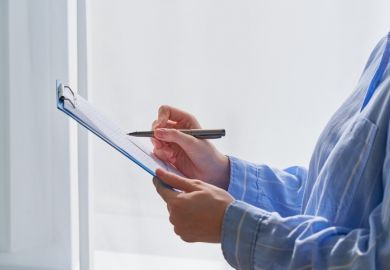Asked what their “ideal student” is like, and social science lecturers seem to be more interested in attitudes than attainment.
Billy Wong, lecturer in widening participation at the University of Reading, and Yuan-Li Tiffany Chiu, soon to take up a position as a teaching fellow in educational development at Imperial College London, conducted the study among 30 social science lecturers at two post-92 London institutions.
They shared their findings at the conference of the Society for Research into Higher Education on 6 December.
The researchers found that, when asked about the characteristics of the “ideal student”, lecturers stressed “being prepared, engaged and committed, as well as being critical, reflective and [actively making progress]”. It was “effort rather than the outcome” that was considered “central to [lecturers’] constructions of an ideal university student”, the paper says.
One respondent commented that some “smart students know that they are super smart and not trying hard at all to complete their work because they think that they can rely on their intelligence for everything”. More generally, students were “praised for ‘trying your best’, more so than ‘being the best’”.
Asked about the practical implications of their research, Dr Wong suggested that universities should think about “strengthening the induction process to make students more aware of what lecturers want. It should be stated explicitly and supported.”
Where lecturers had strong expectations of what they were looking for, particularly when “some students don’t even know what to expect”, it could amount to “an implicit and unconscious preference for certain types of student”, and perhaps disadvantage those from non-traditional backgrounds.
“Should we prepare students a bit more,” asked Dr Wong, “to ensure the starting point is as equal as possible?”
Register to continue
Why register?
- Registration is free and only takes a moment
- Once registered, you can read 3 articles a month
- Sign up for our newsletter
Subscribe
Or subscribe for unlimited access to:
- Unlimited access to news, views, insights & reviews
- Digital editions
- Digital access to THE’s university and college rankings analysis
Already registered or a current subscriber?





